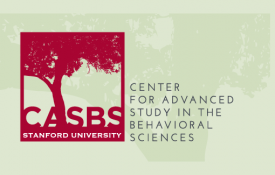-

People Can Infer Which Politicians Are Corrupt From Their Faces
People can make better-than-chance judgments about whether unfamiliar politicians have been convicted of corruption simply by looking at their portraits.
-
A psychologist helps us understand why life is so different around the world
Michele Gelfand used to be “a sheltered Long Island kid who only saw New York and the world through a cartoon lens.” In college, she went to London for the first time and, surprised by the culture shock, decided to learn more about what makes cultures so different around the world. Today, Gelfand is a cultural psychologist at the University of Maryland and author of Rule Breakers, Rule Makers: How Tight and Loose Cultures Wire Our World, which is out on September 11th from Scribner. Gelfand’s key insight is that “tight” societies care more and “loose” cultures care less about enforcing social norms.
-
For the first time, a neural link between altruism and empathy toward strangers
Giving up a kidney to a stranger requires a certain sense of selflessness, what’s come to be known in social science as extraordinary altruism. University of Pennsylvania psychologist Kristin Brethel-Haurwitz wanted to understand the connection between this trait and empathy, specifically empathy for distress emotions. Using fMRI scans, Brethel-Haurwitz and colleagues from Georgetown University discovered that these altruistic kidney donors were more sensitive to a stranger’s fear and pain than a control group, with activation happening in a brain region called the anterior insula, which is key for emotions like pain and disgust.
-

CASBS Accepting Applications for Residential Fellowships
The Center for Advanced Study in the Behavioral Sciences at Stanford University is now accepting applications for residential fellowships for the 2019–2020 academic year.
-
ADHD numbers are rising, and scientists are trying to understand why
The number of children diagnosed with attention-deficit/hyperactivity disorder (ADHD) has reached more than 10 percent, a significant increase during the past 20 years, according to a new study. The rise was most pronounced in minority groups, suggesting that better access to health insurance and mental-health treatment through the Affordable Care Act (ACA) may have played some role in the increase. The rate of diagnosis doubled in girls, although it was still much lower than in boys. But the researchers say they found no evidence confirming frequent complaints that the condition is overdiagnosed or misdiagnosed.
-
5 Science-Approved Ways to Break a Bad Habit
Having habits can often be a good thing. When you drive to work for example, you don’t need to wonder whether you should turn left or right; the route becomes habit. “We want the brain to learn how to do those things without energy and effort,” says Russell Poldrack, a professor of psychology at Stanford University. “Habits are an adaptive feature of how the brain works.” But sometimes, habits can lead us astray—whether it’s turning to comfort food when we’re sad, or taking a cigarette break when stressed.

